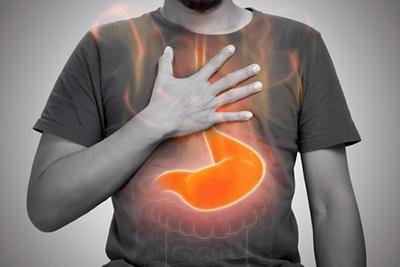
Everyone has heartburn occasionally. It’s that stabbing, burning sensation in your chest, and it has nothing to do with your heart. Heartburn is known as acid reflux, and it’s a condition involving your digestive system. Your gastroenterologist can help you get relief from acid reflux.
What You Need To Know About Acid Reflux
So, what causes acid reflux? It has to do with a sphincter muscle between your stomach and esophagus. When it works normally, it keeps stomach acid from pushing back up into your throat. In cases of acid reflux, the sphincter muscle doesn’t close completely, allowing stomach acid to flow back up into your esophagus, and your throat.
Acid reflux can cause:
- Throat pain or chronic hoarseness
- Chronic bad breath, nausea, and vomiting
- Tooth erosion and increased tooth sensitivity
- Chest or abdominal pain
- Dry coughing or wheezing
For mild, occasional acid reflux, you can try a few simple tips at home which can help decrease symptoms. It’s important to:
- Avoid eating right before bed
- Eat smaller meals and avoid eating large amounts of food at one time
- Stay upright after eating for at least two to three hours after a meal
- Avoid spicy foods and try to maintain a healthy weight
- Avoid smoking and using tobacco products
- Take over-the-counter antacids to eliminate excess stomach acid
If you have moderate to severe or chronic acid reflux symptoms, you need to seek out the expertise of your gastroenterologist. Untreated acid reflux can turn into gastroesophageal reflux disease. This disease, commonly known as GERD, can cause permanent esophageal damage, including esophageal cancer.
Your gastroenterologist will begin with a thorough examination. Your doctor may recommend diagnostic procedures like an endoscopy, to view the inside of your esophagus. Then, your gastroenterologist will develop a treatment plan designed to help eliminate or reduce acid reflux symptoms. Your treatment plan may include:
- Prescription medications to reduce stomach acid
- Dietary changes to eliminate spicy and acidic foods
- Lifestyle changes including meal planning
Want To Know More?
To learn more about the causes, signs, symptoms, and treatment of acid reflux, talk with an expert. Call your gastroenterologist today.